Preclinical
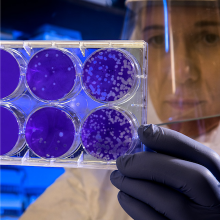
BSL3: Access to high containment lab facilities
The BSL3 in Rotterdam, was founded to accommodate safe research on infectious diseases, such as COVID-19. The BSL3 research lab facility in Rotterdam was designed to operate according to the highest international biosafety and biosecurity standards, and to facilitate research to multiple teams simultaneously, thus providing unique opportunities for collaborative COVID-19 research using a variety of research modalities including high end instruments for experiments and analyses, in vivo (animals) and in vitro.
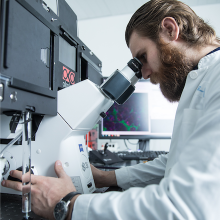
Euro-BioImaging: Open access to services
Biological and biomedical imaging technologies are essential for addressing many of the research questions related to Covid-19, from fundamental research at the molecular and cellular level to medical applications and diagnostics. Euro-BioImaging ERIC provides open access to imaging technologies, training and data services at its 21 Nodes, listed in a dedicated web page along with other related resources.
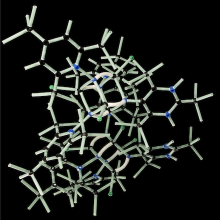
NANBIOSIS: Rapid access for biomedical product development
The Infrastructure for the Production and Characterization of Nanomaterials, Biomaterials and Systems in Biomedicine (NANBIOSIS) provides rapid access for COVID-19 research. It offers preclinical stages services of biomedical product development. Specifically, synthesis and preparation of biomolecules like antibodies, peptides, recombinant proteins, oligonucleotides for diagnostic, therapeutic and prophylactic purposes.
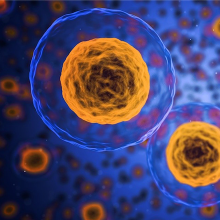
IRTA-CReSA: Preclinical research facilities
IRTA-CReSA is a public research institute devoted to research in animal health following the One Health concept. In the context of COVID-19 crisis, the BSL3 large animal and laboratory facilities can support SARS-CoV-2 isolation, in vitro studies of anti-viral and antibody efficacy, in vivo studies of anti-viral, antibody and vaccine efficacy (once hACE2 transgenic mice become available), antiviral, antibody and vaccine research, and animal infection model development.
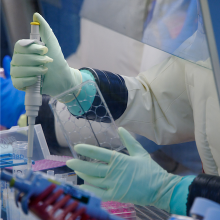
ERINHA: High containment facilities for pre-clinical research
The European Research Infrastructure on Highly Pathogenic Agents (ERINHA) provides access to its members – leading European high containment facilities (BSL3 and BSL4) -, as well as expertise and project management services to advance research on SARS-CoV-2 / COVID-19. The available high containment research capacities include: in vitro research capacity (standard virologic assays, high throughput SARS-CoV-2 screening assays, diagnostic development and testing capacity, virus propagation and quantification), in vivo research capacity (small animal disease models, Non-Human Primates (NHP) disease models, standard in vivo virologic and immunological assays, pre-clinical vaccines and therapeutics testing). Additionally ERINHA provides support for coordination of pre-clinical research activities, project management and advise on protocols.
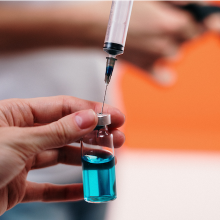
TRANSVAC2: Support for COVID-19 vaccine development
TRANSVAC2 has redirected the currently open call to focus on SARS-Cov2 vaccine efforts. Researchers developing vaccine candidates against COVID-19 are encouraged to apply and benefit from all TRANSVAC2 services, such as:
- Adjuvant formulation (Vaccine Formulation Institute and Helmholtz Centre for Infection Research)
- Structural Biology (INSTRUCT)
- Animal models (CEA, BPRC, IRTA-CReSA and Helmholtz Centre for Infection Research Clinical Trial Support)
- ECRIN (European Clinical Research Infrastructure Network)
- Regulatory support (EATRIS and European Vaccine Initiative)

CETAF and DiSSCo: Joint COVID-19 Task Force
The Consortium of European Taxonomic Facilities (CETAF) and the Distributed System of Scientific Collections (DiSSCo) are forming a covid-19 Task Force. The Task Force will bring together experts with background in topics relevant to the key aspects for the understanding of the zoonotic nature of the SARS-Cov-2 and contribute to the global efforts from the perspective of both key biological properties of the virus and biological informatics. The Task Force objectives are focused on (a) expediting processes across DiSSCo facilities related to the implementation of covid-19 projects, (b) mobilising ad-hoc data across the 120 museums and the more than 1 billion biological specimens and (c) facilitating access to laboratory equipment for analysis of relevant material.
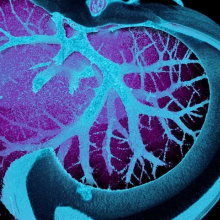
CCP: Priority access to Covid-19 research projects
Czech Centre for Phenogenomics (CCP) generates rodent models related to diagnosis, treatment and prevention of the Covid-19 virus infection (e.g. several serine protease mouse mutant lines). Available resources, services and support include generation of rodent disease models relevant for Covid-19 research, standard cryopreservation and archiving services, advanced secondary phenotyping pipelines relevant to lung inflammation and fibrosis, pre-clinical testing, metabolomics and MALDI imaging from tissue samples and biopsies. Project proposals can be submitted by email, and will be evaluated and conducted with the highest priority.
CCP is a member of INFRAFRONTIER and due to the comprehensive portfolio of its expertise, it has also become a member of international consortium IMPC.
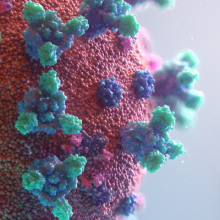
EATRIS: Biomedical research resources
The research resources of European Infrastructure for Translational Medicine (EATRIS) are highly relevant for the research community in the context of the COVID-19 pandemic, and has created an inventory of all related research activities underway at EATRIS facilities.
As part of the Alliance of Medical Infrastructures with BBMRI and ECRIN, EATRIS also offers a Fast Response Service for researchers.
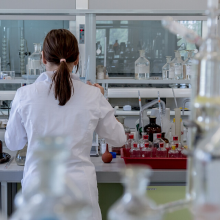
Alliance of Medical Research Infrastructures
The COVID-19 Fast Response Service is a coordinated and accelerated procedure for researchers to access the academic facilities, services and resources of the three medical research infrastructures: the European Research Infrastructure for Translational Medicine (EATRIS), the European Clinical Research Infrastructure network (ECRIN) and the European research infrastructure for biobanking (BBMRI), working together under the umbrella of the Alliance of Medical Research Infrastructures (AMRI).
